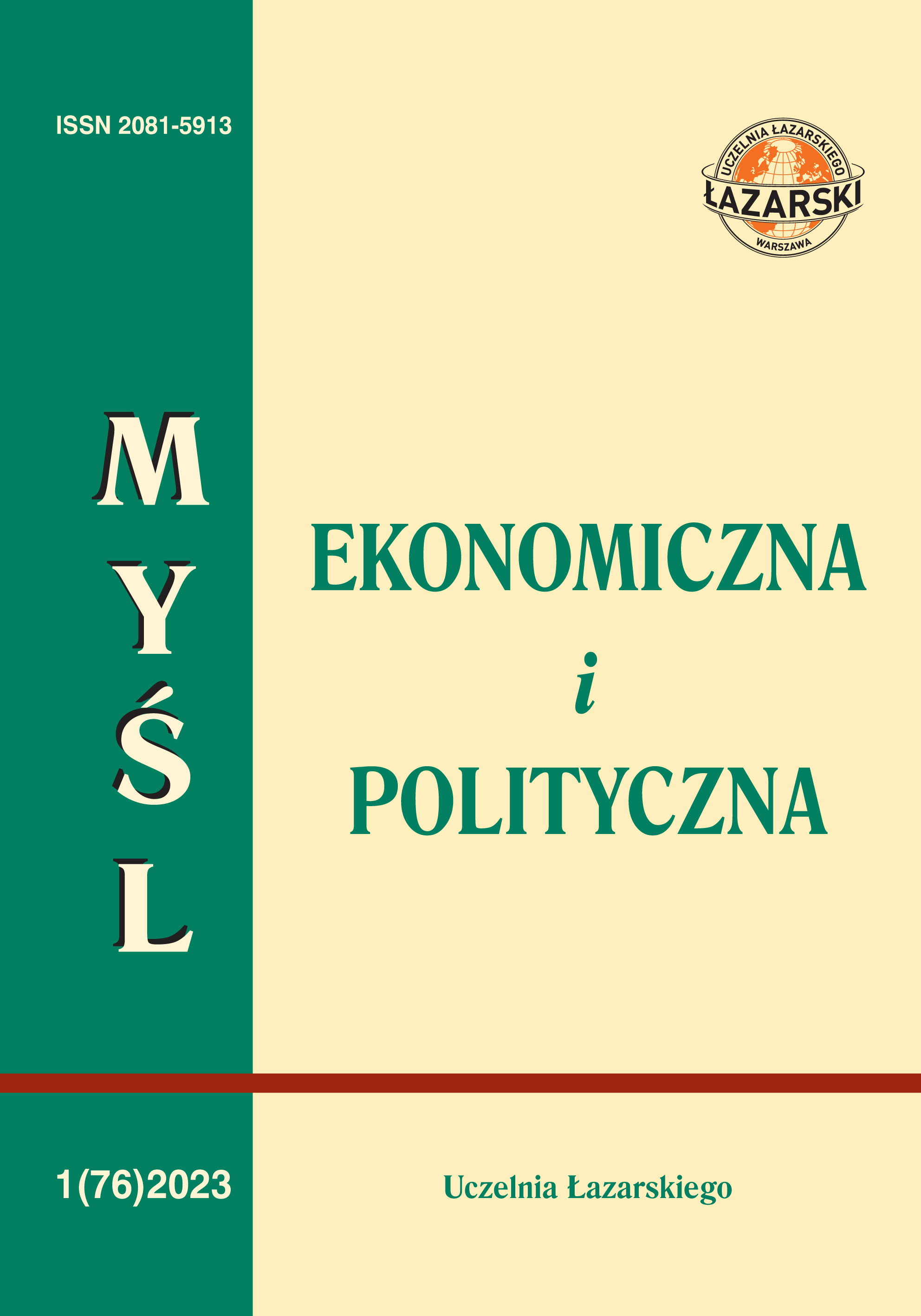The European Green Deal in Energy Sector: Challenges and Possibilities for Poland and Post-War Ukraine
Keywords:
the European Green Deal, Poland, Ukraine, energy policy, the Russia-Ukraine war, carbon neutralityAbstract
This paper explores the evolution of EU energy policies leading to the European Green Deal (EGD), highlighting the impact of the Russia-Ukraine war on these policies. The EGD, enshrined in the European Climate Law, commits the EU to achieving carbon neutrality by 2050. It involves reducing net greenhouse gas emissions by at least 55% by 2030 compared to 1990. The EU’s journey towards carbon neutrality faces multifaceted challenges, with the Russia-Ukraine war introducing geopolitical uncertainties. The paper explores the development of EU energy legislation, notably the Fourth Energy Package, and its integration with climate goals. It also examines the impact of the Russia-Ukraine war on EU energy policies, which has led to a reassessment of energy supply sources and increased emphasis on renewables and energy efficiency. The article delves into Poland’s challenges as it strives to align with the EGD. Poland’s transition from coal-dominated energy production to renewables and nuclear energy poses economic and employment challenges and the need for substantial investments. Despite these challenges, the EU’s commitment to reducing carbon emissions and geopolitical developments is pushing Poland towards a more sustainable energy future. Ukraine’s role in the EGD and its challenges in a post-war context are complex and multifaceted. Ukraine’s commitment to join the EGD is a significant step towards aligning its environmental and energy policies with European standards. The country’s cooperation with the EU on green hydrogen production is a positive development, even though Ukraine’s water scarcity is a concern. Ukraine faces challenges related to energy system flexibility, especially as the share of renewable energy sources increases. The country’s commitment to phasing out coal in state-owned electricity generation by 2035 is commendable. Ensuring a just transition for coal miners and coal dependent regions is a complex and long-term task. Securing adequate financial support for Ukraine’s transition to a green economy, including energy independence and EGD compliance, is crucial. Effective planning, international cooperation, and support for a just transition will be essential for Ukraine to achieve its environmental and energy goals while addressing the complexities arising from the war.
Downloads
Published
Issue
Section
License

This work is licensed under a Creative Commons Attribution-NonCommercial-ShareAlike 4.0 International License.

